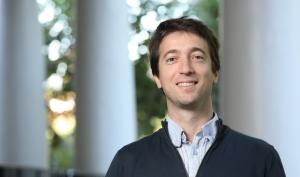
Most of Sebastian Elbaum’s work boils down to a single question: How do we build autonomous systems that do the right things?
“Answering that question entails learning how to specify what is right, for whom, when and under what environments, and then systematically ensuring that the system will respect those specifications,” said Elbaum, a professor and the Anita Jones Faculty Fellow in the Department of Computer Science at the University of Virginia School of Engineering and Applied Science.
Elbaum has been named a fellow of the Association for Computing Machinery, selected for his outstanding contributions “to the analysis and testing of evolving systems and robotic systems,” according to a news release. Evolving systems are updated over time to improve them or adapt them to new requirements.
The ACM Fellows program recognizes the top 1% of the association’s members. Elbaum is one of 57 fellows named to the class of 2022.
“This is a well-deserved recognition of Sebastian’s influential work in the area of software engineering,” said Sandhya Dwarkadas, Walter N. Munster Professor and chair of the Department of Computer Science.
“Sebastian’s innovations in learning how to correctly specify the behavior of software, and the corresponding development of analysis techniques to ensure adherence to these specifications, is critical to the safe deployment of autonomous systems such as drones, one test vehicle for his research.”
Though this isn’t Elbaum’s first time in the spotlight for his research and leadership, he is honored by the distinction.
“When I look at the list of ACM fellows I see researchers who have identified important problems and shaped the foundational approaches to solving them,” he said. “Being included in that group is just mind-boggling.”
One of the most intriguing projects Elbaum’s team is pursuing is developing automated techniques that can analyze how an autonomous system, such as a self-driving car or drone interacting with bystanders, will behave when encountering situations it has not yet seen.
“Humans are fairly good at that, but today’s systems struggle to even recognize when they are not capable of processing a new context,” he said. “These techniques have the potential not only to detect problematic issues with these systems and correct them, but also to provide guarantees they are going to satisfy a suitable behavior.”
Elbaum, who is a bilingual and bicultural Argentinian American, earned his bachelor’s in systems engineering from the Universidad Catolica de Cordoba, Argentina, in 1995. In 1997 and 1999, respectively, he earned a master’s and Ph.D. in computer science from the University of Idaho.
Before he was recruited to UVA Engineering in 2018, he joined the University of Nebraska-Lincoln Department of Computer Science and Engineering in 1999, and served as the Charles Bessey Professor of Computer Science there for approximately three years.
Elbaum has published more than 150 articles on analysis techniques to make complex systems more dependable, including a test-of-time award winner and seven distinguished or best paper awards. He has been supported by more than 25 external grants, including several in which he is exploring how to narrow the gap between automated program analysis techniques and robotic system development.
His accomplishments include being named an Institute of Electrical and Electronics Engineers fellow. He is also a founding faculty member of the Leading Engineering for Safe Software Lab at UVA Engineering. Additionally, Elbaum has served as program chair, co-chair or steering committee chair at several international software engineering symposia and as an editor for two academic journals in his field.
Elbaum said the ACM fellowship is another opening to influence global computing technology in software engineering and testing to ensure safety and reliability – a research area in which UVA’s Department of Computer Science excels.
“This gives me the opportunity to help promote great researchers who, in my eyes, deserve to be fellows,” he said. “It will also provide more visibility of the top-notch work my group and colleagues at UVA are doing.”